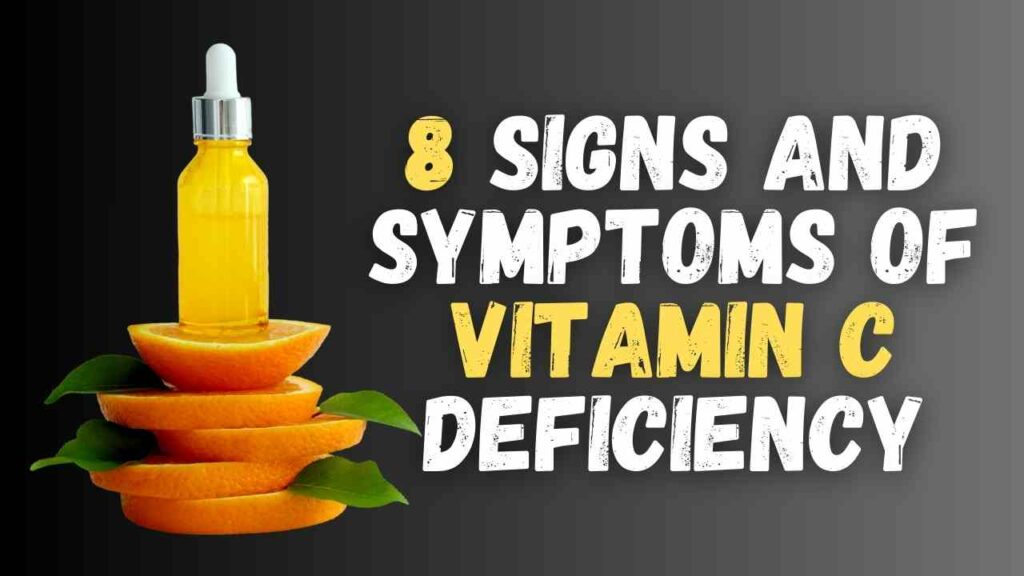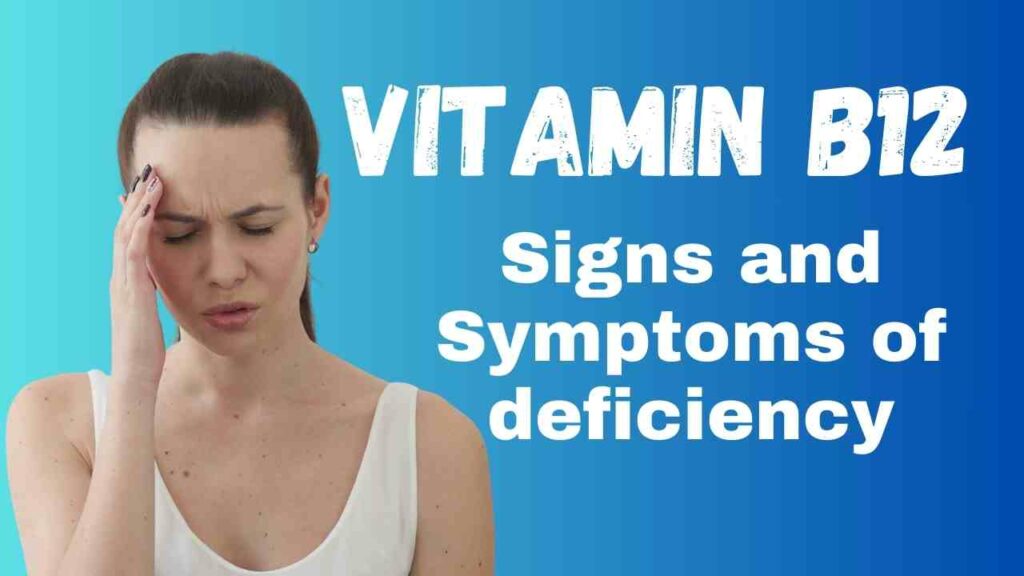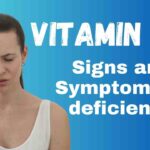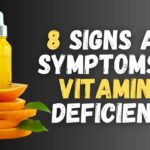Vitamins have their own unique perks and jobs within our bodies. Today, we’re diving into the world of a specific vitamin that holds a special power known as “tocopherol” properties which means “to bear offspring.” By now, you know that we are talking about vitamin E, the potent antioxidant which supports the birth and growth of cellular health, protects cells from oxidative stress, and contributes to the normal functioning of several bodily systems.
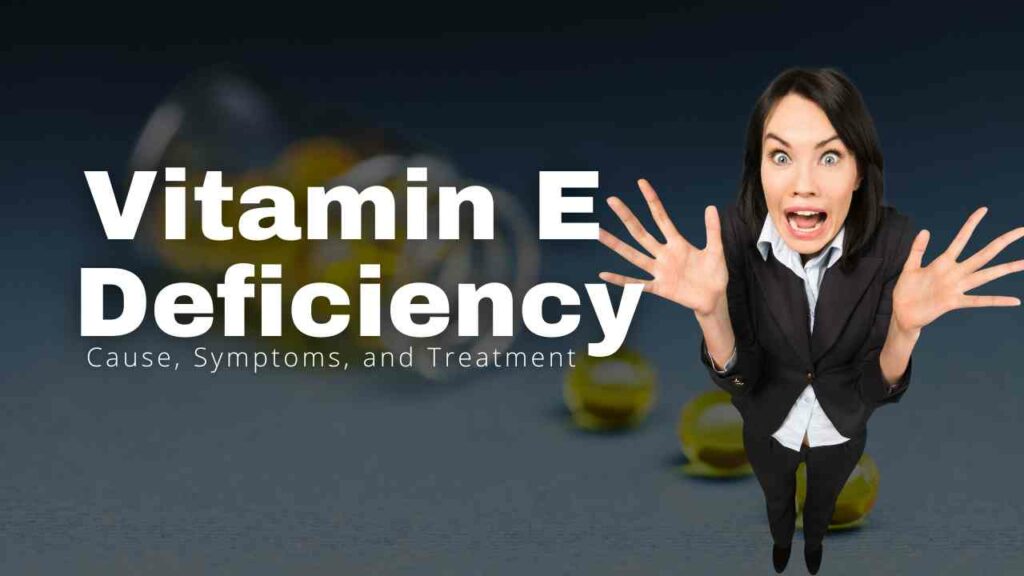
But here’s where the plot thickens: when we fall short of getting enough vitamin E, things can take a turn for the worse. This is when Vitamin E deficiency creeps in, bringing many health issues. But what exactly causes vitamin E deficiency? What are the vitamin E deficiency symptoms? And how can we treat vitamin E deficiency? In this blog, we will answer all your questions so you can take charge of your health and stay healthy.
Table of Contents
What is vitamin E
Vitamin E, a vital nutrient, is essential for overall health and functions. As a fat-soluble compound, alpha-tocopherol, it’s a powerful antioxidant, shielding cells from free radical damage. It aids immunity, skin, blood vessels, and brain health, preserving cell integrity. Our body can’t produce vitamin E; hence dietary sources are the only way to fulfill the requirements.
How much vitamin E does the body need?
The recommended daily requirement of vitamin E varies depending on factors such as age, sex, and life stage. Generally, the Recommended Dietary Allowance (RDA) of vitamin E is around 15 milligrams (22.4 International Units) per day for adults. However, specific requirements may differ, so it’s important to consult with a healthcare professional for personalized recommendations.
Delicious Goan Kokum Solkadhi Recipe & Health Benefits
At least once in your life, you’ve likely come across the concept of a digestive…
Dalia Pancake Recipe good for Diabetes
As all about fitness, your top priority is eating protein-rich foods. But it can be…
Goan Khatkhate Recipe for Weight loss
What makes us obese is always a pressing concern and question. In my experience with…
- Recommended Dietary allowances (RDA)
- 0-6 months kid: 4 mg/day
- 7-12 months kid: 5 mg/day
- 1-3 years: 6 mg/day
- 4-8 years: 7 mg/day
- 9-13 years: 11 mg/day
- 14+ years: 15 mg/day
- Lactation: 19 mg/day
While vitamin E is crucial for health, excessive intake beyond the recommended levels may lead to potentially adverse effects. Intake above 1,000 milligrams per day from supplements can interfere with blood clotting and increase the risk of bleeding. Therefore, avoiding consuming vitamin E supplements in excess of the recommended doses is advisable without consulting a healthcare provider.
Vitamin E deficiency symptoms
Vitamin E deficiency can manifest through various symptoms, often reflecting its role in maintaining cellular health and functioning. As an antioxidant, vitamin E shields cells from oxidative damage. Its deficiency disrupts muscle function, impairs vision, weakens immunity, and affects nerve signaling, highlighting its essentiality for overall well-being. The following are the common symptoms you may observe in vitamin E deficiency.
- Muscle Weakness
- Vision Problems
- Neurological Issues
- Cognitive Impairment
- Anemia
- Decreased Balance and Coordination
- Skin Problems
Vitamin E deficiency cause
Vitamin E deficiency is exceptionally rare in humans, as it’s not typically due to a diet lacking in vitamin E-rich foods. Instead, it usually results from issues related to how our bodies absorb or process dietary fats. Vitamin E is a fat-soluble nutrient with potential benefits like reducing atherosclerosis and the risk of heart disease. In newborns, premature and low birth weight infants often lack vitamin E reserves, as it can only pass through the placenta in limited amounts.
8 signs and symptoms of vitamin C deficiency
We’ve all heard about the importance of vitamins and nutrients in maintaining good health. Among…
Signs and Symptoms of Vitamin B12 deficiency
Have you ever wondered if your body might be trying to tell you something important?…
Vitamin E deficiency: Cause, Symptoms, and Treatment
Vitamins have their own unique perks and jobs within our bodies. Today, we’re diving into…
Who is at risk of vitamin E deficiency?
Although dietary inadequacy is mostly the reason behind deficiency, certain conditions can risk people and play a big role. Here are the factors that can increase the chances of vitamin E deficiency:
- Premature Low Birth Weight: Infants weighing less than 1500 grams (3.3 pounds) at birth have limited vitamin E reserves.
- Tocopherol Transfer Protein Mutations: Genetic mutations affecting fat metabolism can lead to deficiency.
- Fat Malabsorption: Conditions like disrupted fat absorption in the small intestine, affect vitamin E uptake.
- Cystic Fibrosis: Patients can’t properly secrete pancreatic enzymes for vitamin absorption.
- Short-Bowel Syndrome: This can stem from surgically removing the intestine or other issues, delaying symptom onset.
- Chronic Liver Conditions: Liver diseases like cholestatic hepatobiliary disease reduce bile flow, which is vital for vitamin E absorption.
- Digestive Disorders: Conditions such as Crohn’s, exocrine pancreatic insufficiency, and liver disease may hinder fat absorption.
- Genetic Disorders: Conditions like abetalipoproteinemia and isolated vitamin E deficiency syndrome impact lipoprotein production and vitamin E uptake.
Vitamin E deficiency treatment
Vitamin E deficiency, if left untreated, can lead to a range of neurological and systemic complications. Early diagnosis, appropriate treatment, and ongoing monitoring are crucial to prevent the progression of symptoms and the development of severe complications. If you suspect a vitamin E deficiency or experience any of the mentioned symptoms, it’s important to consult a healthcare professional for proper evaluation and management. However, it is wise to follow the following recommendations if it is just the early signs of the symptoms or if you want to prevent vitamin E deficiency.
Diet to prevent vitamin E deficiency
Increase Consumption of Vitamin E-Rich Foods: Incorporate foods that are naturally high in vitamin E into your diet. Some of the best sources include:
- Nuts and seeds: Almonds, sunflower seeds, hazelnuts, Flax seeds and pine nuts.
- Vegetable oils: Sunflower oil, safflower oil, and wheat germ oil.
- Green leafy vegetables: Spinach, Swiss chard, and kale.
- Whole grains: Wheat germ, whole wheat products, and brown rice.
- Fortified foods: Check food labels for products that are fortified with vitamin E, such as certain cereals.
Use Healthy Oils:
Choose cooking oils that are rich in vitamin E, such as sunflower oil, safflower oil, and olive oil. Using these oils in your cooking can help increase your vitamin E intake.
Include Nuts and Seeds:
Snack on nuts and seeds as a healthy and convenient way to boost your vitamin E levels. Add them to your yogurt, oatmeal, or salads for an extra nutrient boost.
Consume Nut Butters:
Nut butters made from vitamin E-rich nuts like almonds or sunflower seeds can be a delicious and nutritious addition to your diet. Spread them on whole grain toast or use them as a dip for fruits and vegetables.
Eat More Leafy Greens:
Incorporate more leafy greens like spinach, Swiss chard, and kale into your meals. You can add them to salads, soups, smoothies, or sauté them as a side dish.
Choose Whole Grains:
Opt for whole grain products like whole wheat bread, brown rice, and whole grain pasta to increase your vitamin E intake.
Explore Fortified Foods:
Look for fortified foods, such as breakfast cereals or plant-based milk alternatives, that are enriched with vitamin E.
Include Vitamin E in Snacks:
Have a handful of nuts or seeds as a snack, or pair them with fruits like berries for a nutrient-rich and satisfying snack option.
Diversify Your Diet:
Aim for a diverse and colorful diet that includes a variety of fruits, vegetables, whole grains, nuts, and seeds. This will not only provide you with vitamin E but also a range of other essential nutrients.
Cook and Store Foods Properly:
Some cooking methods, like frying, can reduce the vitamin E content of foods. Opt for cooking methods that preserve the nutrient content, such as steaming or baking. Additionally, store foods properly to minimize nutrient loss.
Consult a Dietitian:
If you’re unsure about how to incorporate more vitamin E-rich foods into your diet or if you have specific dietary restrictions, consider consulting a registered dietitian. They can help create a personalized meal plan that addresses your nutritional needs.
Vitamin E Supplementation Guidelines and Considerations:
When it comes to vitamin E supplementation, it’s important to follow appropriate guidelines based on the underlying cause of deficiency and individual patient needs. Consultations with healthcare professionals, especially specialists, may be necessary to determine the right course of action. Here are some key points to consider regarding vitamin E supplementation:
Consult with Specialists:
Depending on the underlying cause of vitamin E deficiency, consultations with relevant specialists may be needed. For example, if a biliary problem is identified, a gastroenterologist should be consulted to address and manage the underlying condition.
Dose Recommendations:
Replacement recommendations for vitamin E supplementation vary based on the specific disease or condition causing the deficiency:
- Abetalipoproteinemia: 100 to 200 IU/kg per day
- Chronic cholestasis: 15 to 25 IU/kg per day
- Cystic fibrosis: 5 to 10 IU/kg per day
- Short-bowel syndrome: 200 to 3600 IU per day
- Isolated vitamin E deficiency: 800 to 3600 IU per day
Pregnancy and Breastfeeding:
Vitamin E is generally considered safe for pregnancy and breastfeeding. However, it’s important to consult a healthcare provider before starting any supplementation during pregnancy or while breastfeeding. High doses of vitamin E supplementation may impact the requirements of other nutrients, such as vitamin K and omega-6 fatty acids. Healthcare providers can provide guidance on appropriate dosages and potential interactions.
Individualized Treatment:
Each patient’s situation is unique, and vitamin E supplementation should be tailored to their specific needs and health conditions. Healthcare providers will take into account factors such as age, medical history, overall health, and the severity of the deficiency when determining the appropriate supplementation regimen.
Monitoring and Follow-Up:
Regular monitoring of vitamin E levels and overall health is important when undergoing supplementation. Follow-up appointments with healthcare providers will help track progress and make any necessary adjustments to the supplementation plan.



